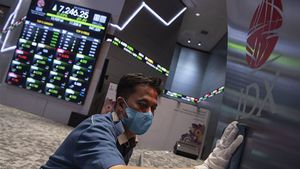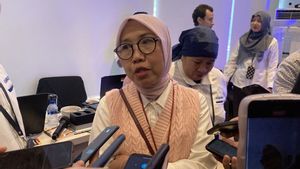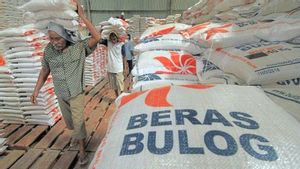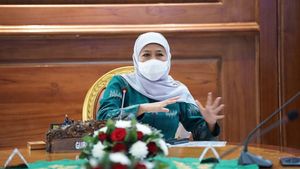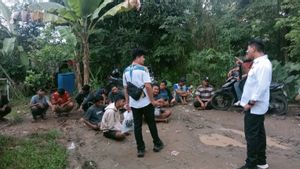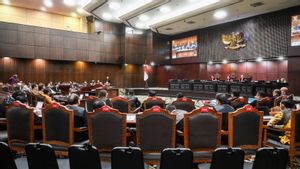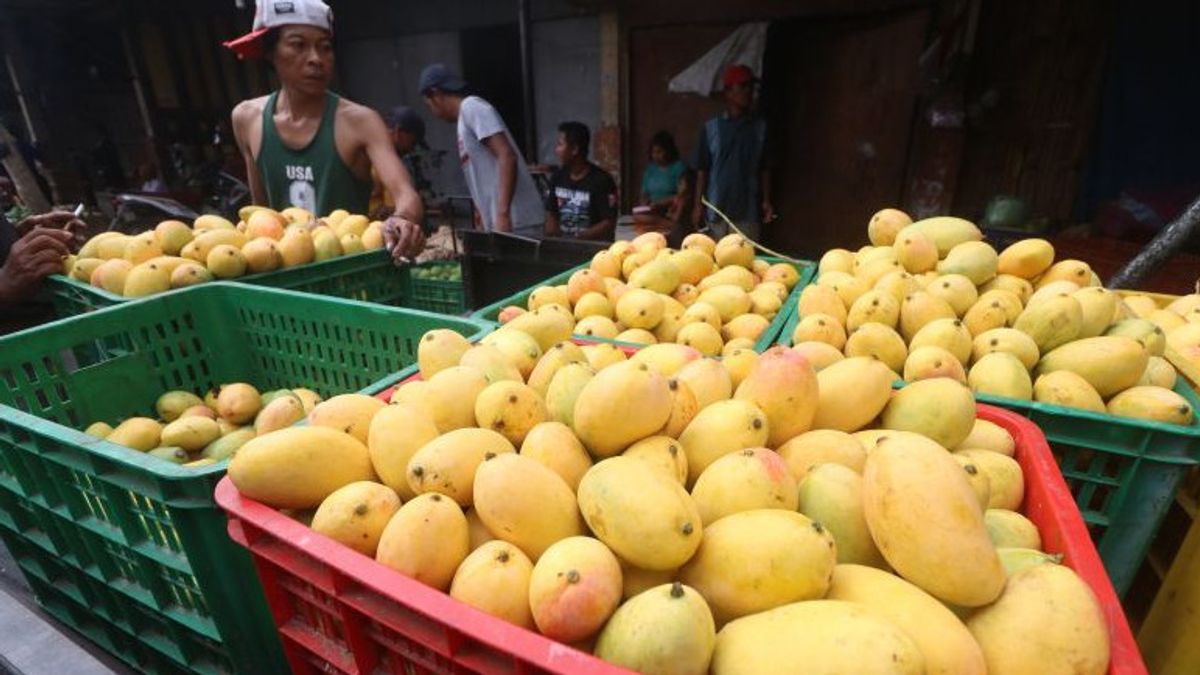
JAKARTA - Four students from the Faculty of Medicine, Public Health and Nursing (FK-KMK) Universitas Gadjah Mada (UGM) initiated the use of mango skin to make natural larvae to suppress Dengue Hemorrhagic Fever (DHF) cases.
"In mango skin there are flavonoid compounds, saponins, and tannins, which have the potential to be used as larvae," said FK-KMK UGM student Santi Andriyani in an official statement in Yogyakarta, quoted from Antara, Sunday, January 21.
According to him, a bibli study from previous studies found that there are active compounds in mango skin that have the potential to be developed as substances that can be used to kill mosquito larvae.
Santi and three colleagues at FK-KMK UGM, Salman Hafiz Ar-ramli Lubis, Nisa Munawwarah, and Jessica Edelyne, who are members of the Mango Skin for Organic Sustainable Aedes Insect Control (MOSAIC) team then initiated the formula.
Santi explained that flavonoids are able to interfere with the nervous system and the breathing of larvae, while saponins can become strong stomach toxins in insects, and tannins can inhibit digestive enzymes.
The idea of using mango skin waste as a natural larvae, said Santi, is not only an alternative in helping to prevent dengue cases, but also contributing to unraveling environmental problems by processing waste that was previously not used and only become waste for the environment.
He gave an example in Thailand in 2020 the total production of mangoes reached 1.66 million tons, so there is great potential for mango skin waste in the country.
"This makes us think that processed waste originating from mango skin in Thailand has great potential to overcome the problems the country is facing. Because Thailand itself is one of the largest mango producers in the world," he said.
Another FK-KMK UGM student, Salman Hafiz added that the idea of developing natural larvae stemmed from their concern about WHO reports regarding the sharp spike in dengue cases globally.
The spike in the dengue outbreak was marked by a significant increase in the number, scale, and increase in cases.
"Even the WHO stated that the current spike in the outbreak was followed by the spread to areas that had not previously been exposed to dengue fever," he said.
관련 항목:
WHO 2023 data noted that although nearly 80 percent or about 4.1 million cases of the outbreak of dengue fever were reported to have occurred in America. However, in Southeast Asia, especially in Thailand, the prevalence of dengue events in 2023 increased sharply to more than 300 percent compared to the previous year.
The idea, which was carried by four young students in the MOSAIC Team, managed to lead them as finalists in the International Bio-Circular-Green economy (BCG) competition organized by Kasetsart University, Thailand.
Researcher from the UGM Herbal Medicine Center as well as the supervisor of the MOSAIC Team, Dr Jatmiko Wicaksono, said that participating in UGM students in international competitions and forums can provide experience for them.
"The proposed idea can also contribute to solving problems at the global level," he said.
The English, Chinese, Japanese, Arabic, and French versions are automatically generated by the AI. So there may still be inaccuracies in translating, please always see Indonesian as our main language. (system supported by DigitalSiber.id)


